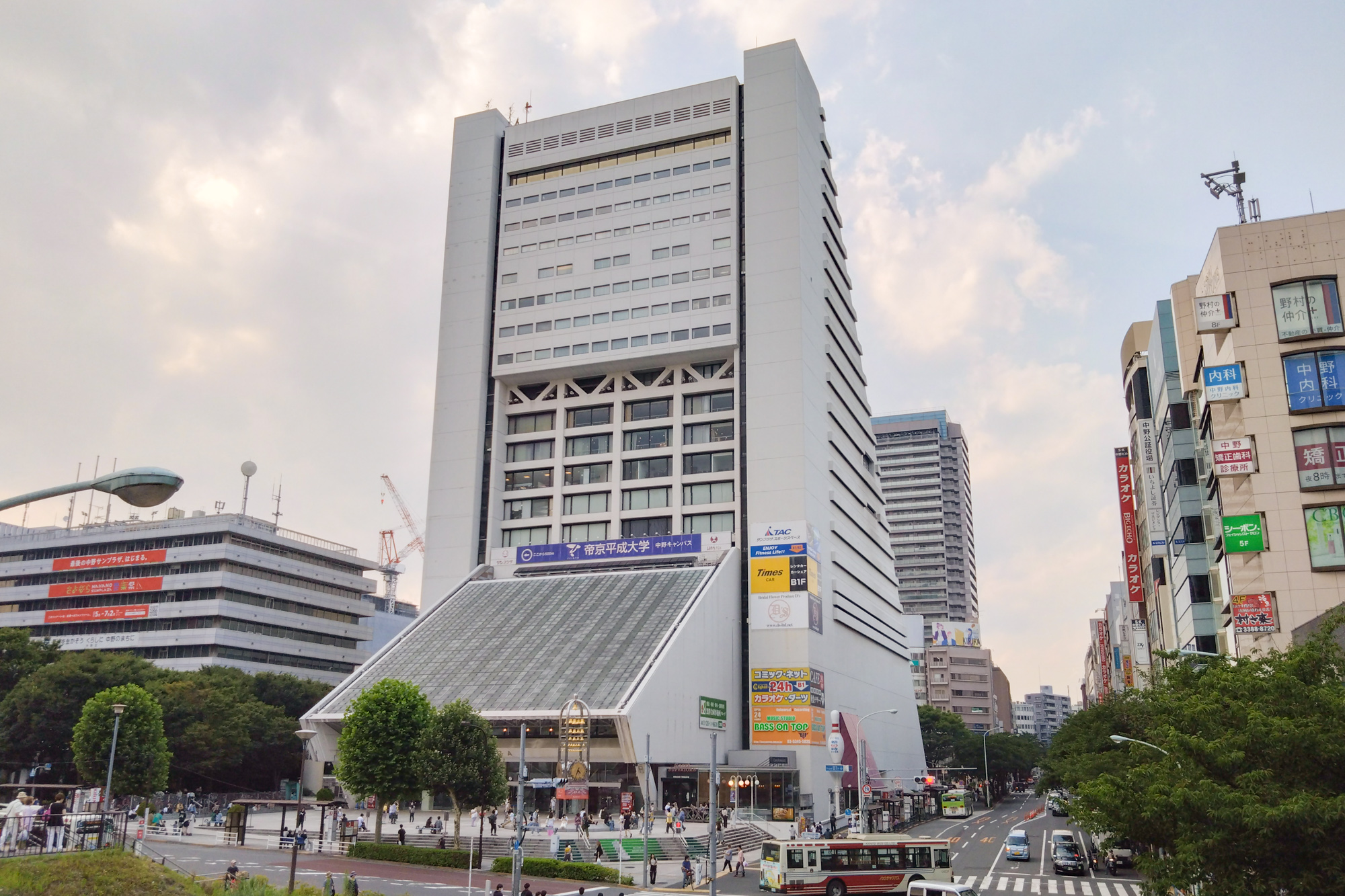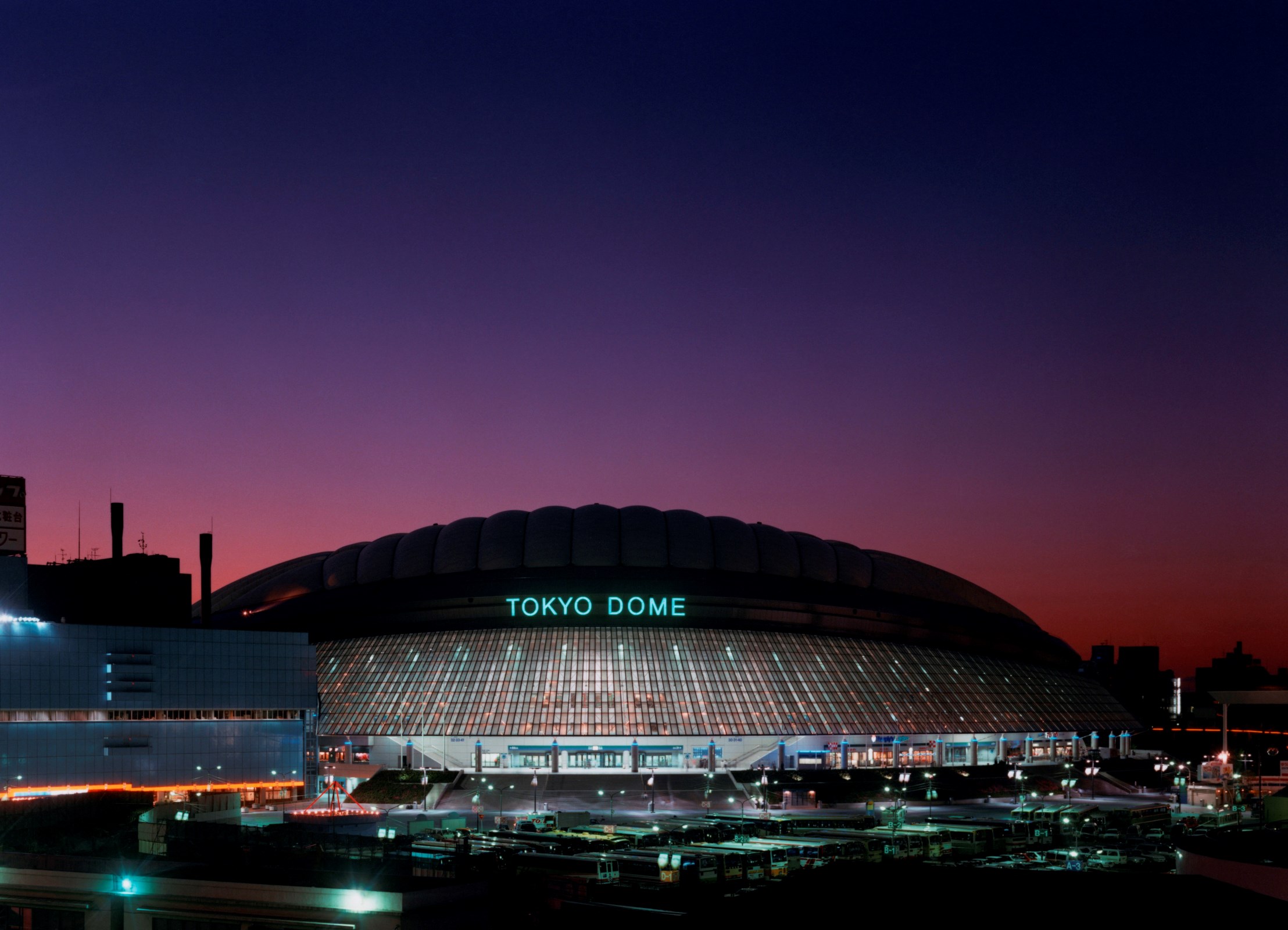Tokyo Dome: The Iconic Landmark Of Japanese Sports And Entertainment is a world-renowned multipurpose indoor stadium located in Bunkyo, Tokyo, Japan. It is the home to the Yomiuri Giants baseball team and has hosted numerous major sporting events and concerts.
After analyzing data and gathering information, we've put together this guide to provide comprehensive insights into Tokyo Dome.
| Feature | Tokyo Dome |
|---|---|
| Capacity | 55,000 |
| Opened | 1988 |
| Events Hosted | Baseball games, concerts, boxing matches, sumo wrestling tournaments |
- History and Construction of Tokyo Dome
- Notable Events and Performances Held at Tokyo Dome
- Architectural Features and Design of Tokyo Dome
- Economic and Cultural Impact of Tokyo Dome
- Tokyo Dome Today and Future Prospects
- Conclusion: Tokyo Dome's Legacy
FAQ
Tokyo Dome: The Iconic Landmark Of Japanese Sports And Entertainment Tokyo Dome is the first indoor multi-purpose stadium in Japanese history and has been the home of professional baseball team Yomiuri Giants since 1988. It has also hosted numerous international sporting events including baseball games in the 2000 Summer Olympics and football matches in the 2002 FIFA World Cup. Tokyo Dome is so much more than a sports venue. It is a comprehensive entertainment and leisure facility that provides countless experiences for many years to come.

Mount Fuji, | Tourist places, Japan landscape, Cool places to visit - Source www.pinterest.jp
Question 1: What makes Tokyo Dome unique?
Tokyo Dome is one of a kind because it was the first indoor stadium built to host baseball games. Featuring a retractable roof, Tokyo Dome allows for games to be played in any weather and is equipped with cutting-edge technology to enhance the fan experience.
Question 2: What major events have been held at Tokyo Dome?
Besides baseball games, Tokyo Dome has hosted a wide range of popular events. These include concerts by famous international bands, mixed martial arts matches, monster truck rallies, and even political rallies.
Question 3: Is it possible to tour Tokyo Dome?
Yes, guided tours of Tokyo Dome are available for individuals and groups. The tours provide a behind-the-scenes look at the stadium, including the dugouts, press box, and even the broadcaster's booth.
Question 4: What are the food and beverage options at Tokyo Dome?
Tokyo Dome offers a diverse array of dining choices to suit every taste and budget. From traditional Japanese cuisine to fast food and snacks, there is something for everyone to enjoy.
Question 5: How do I get to Tokyo Dome?
Tokyo Dome is conveniently located in the heart of Tokyo. It can be easily accessed by train, subway, or bus. There are several stations within walking distance of the stadium.
Question 6: What are the hours of operation for Tokyo Dome?
Tokyo Dome is generally open from 9:00 am to 9:00 pm every day. However, hours may vary depending on events or stadium maintenance.
Tokyo Dome is more than just a sports stadium - it is a true entertainment hub that offers an unparalleled experience for visitors of all ages. Whether you are a sports fan or simply looking for a unique and memorable outing, Tokyo Dome is the perfect destination.
To learn more about Tokyo Dome and its upcoming events, visit the official website.
Tips
Tokyo Dome is an iconic landmark for sports and entertainment in Japan, attracting millions of visitors annually. Here are some tips to enhance your visit:
Tip 1: Book Tickets in Advance
To avoid disappointment, purchase tickets online or through authorized ticket vendors. Check the official Tokyo Dome website for event schedules and availability.
Tip 2: Arrive Early to Avoid Crowds
Gates typically open two hours before events. Arriving early allows ample time to navigate the vast complex, find your seats, and enjoy concessions without rushing.
Tip 3: Explore the Tokyo Dome City Area
Tokyo Dome is part of the larger Tokyo Dome City complex, which features entertainment options like an amusement park, shopping centers, and restaurants. Take advantage of your visit to explore the surrounding area.
Tip 4: Utilize Public Transportation
Tokyo Dome is conveniently located near Suidobashi Station, served by multiple train lines. Public transportation is the most efficient and cost-effective way to reach the venue.
Tip 5: Respect Japanese Culture and Etiquette
As with any cultural event in Japan, it is important to observe local customs. Avoid using loud or boisterous language, follow queuing rules, and dispose of waste properly.
Tip 6: Consider a Guided Tour
Guided tours provide valuable insights into the architectural marvels and historical significance of Tokyo Dome. Book a tour to enhance your knowledge and experience.
Tip 7: Take Advantage of Photo Opportunities
Tokyo Dome's stunning architecture and vibrant atmosphere offer countless photo opportunities. Capture memories of the iconic structure and share your experience on social media.
Tip 8: Enhance Your Visit with Food and Drinks
A wide variety of food and beverage options are available within Tokyo Dome. Concessions offer a range of culinary delights, from traditional Japanese cuisine to international favorites.
By following these tips, you can ensure a memorable and enjoyable visit to Tokyo Dome, an unforgettable destination for sports enthusiasts and entertainment seekers alike.
Tokyo Dome: The Iconic Landmark Of Japanese Sports And Entertainment
Tokyo Dome stands as an iconic landmark in the realm of Japanese sports and entertainment, embodying the very essence of this vibrant industry.
- Sports Mecca: Tokyo Dome hosts legendary baseball games, serving as the home ground for the Yomiuri Giants.
- Entertainment Hub: It transforms seamlessly into a concert and event venue, hosting world-renowned musicians and spectacular shows.
- Architectural Marvel: Its retractable roof, a marvel of engineering, allows for events throughout the year, enhancing its versatility.
- Cultural Icon: Tokyo Dome has become synonymous with Japanese popular culture, featured in countless films and television series.
- Tourism Magnet: It attracts both domestic and international visitors, boosting the local economy and showcasing Japan's entertainment industry.
- Historical Legacy: The dome's construction in 1988 marked a significant era in Japan's economic boom, becoming a symbol of pride and prosperity.
These key aspects intertwine to create a captivating tapestry that is Tokyo Dome. It represents not only the pinnacle of sports and entertainment but also the indomitable spirit and technological prowess of Japan. The dome continues to evolve with the times, ensuring its enduring legacy as a symbol of Japanese culture and excellence.

Nakano Sunplaza Closes after 50 Years: A Farewell to an Iconic Tokyo - Source www.newsdirectory3.com

31 Famous Landmarks in Japan and Japan Monuments | Travelgal Nicole in - Source www.pinterest.com
Tokyo Dome: The Iconic Landmark Of Japanese Sports And Entertainment
Tokyo Dome, a futuristic architectural marvel, stands as a preeminent symbol of Japanese sports and entertainment. Its construction in 1988 marked a pivotal moment, revolutionizing the landscape of these industries. The dome's ingenious design and state-of-the-art facilities have solidified its position as a renowned venue for major sporting events, including baseball, boxing, and wrestling. Additionally, it has hosted a plethora of concerts, exhibitions, and other cultural extravaganzas, captivating audiences with its versatility and grandeur. The dome's iconic status extends beyond its physical presence, as it has become an integral part of Japanese popular culture, frequently featured in films, television shows, and anime. Its enduring appeal and multifaceted nature underscore its significance as a landmark of national pride and a testament to Japan's unwavering commitment to excellence in sports and entertainment.

TOKYO DOME | Cultural/Sports | Projects | NIKKEN SEKKEI LTD - Source www.nikken.jp
Tokyo Dome's impact on Japanese sports is undeniable. It serves as the home stadium for the Yomiuri Giants, one of Japan's most successful baseball teams. The dome's retractable roof allows for games to be played year-round, creating a unique and immersive experience for fans. Its advanced facilities, such as the "Thunder Clap" sound system and high-definition video screens, enhance the atmosphere and provide spectators with an unparalleled level of engagement. Beyond baseball, the dome has hosted countless other sporting events, including international boxing matches and professional wrestling tournaments. Its adaptability and world-class amenities have made it a preferred destination for a wide range of athletic competitions.
In the realm of entertainment, Tokyo Dome has established itself as a premier venue for concerts and live performances. Its massive capacity and flexible seating arrangements allow it to accommodate a diverse array of events, from intimate acoustic sets to large-scale extravaganzas. The dome's acoustics and lighting systems are renowned for their exceptional quality, ensuring an unforgettable experience for both performers and attendees. Tokyo Dome has played host to legendary artists such as Michael Jackson, Madonna, and Lady Gaga, solidifying its reputation as a global entertainment hub.
The dome's cultural significance extends beyond its sporting and entertainment functions. It has become a symbol of Japan's economic prosperity and technological prowess. The dome's construction showcased Japan's ability to innovate and push the boundaries of engineering. Its futuristic design has inspired countless architectural projects around the world, influencing the design of stadiums and entertainment venues. Tokyo Dome has also played a role in promoting Japanese culture internationally. Its concerts and events have introduced Japanese entertainment to a global audience, fostering cultural exchange and appreciation.